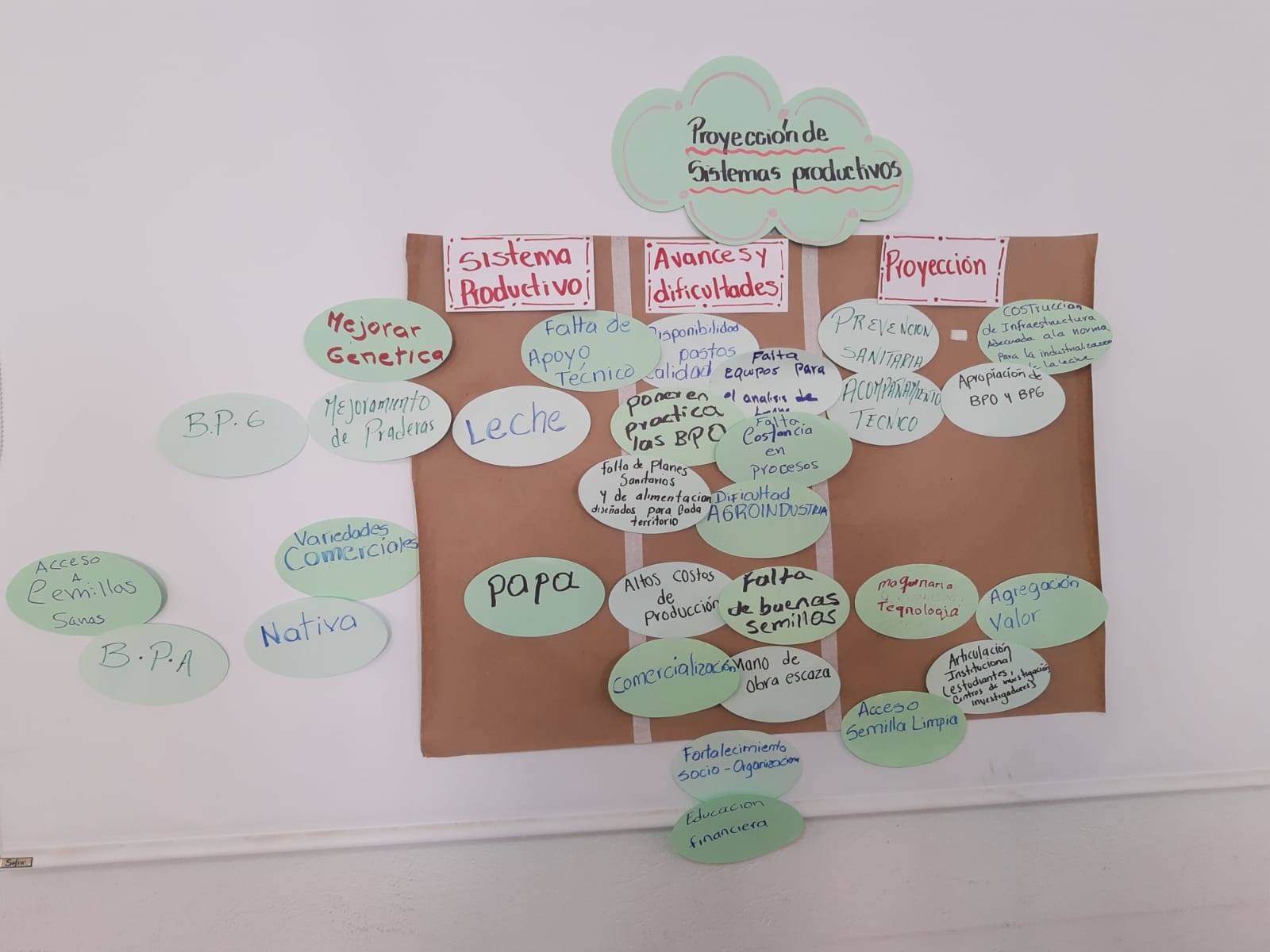ITS is a mechanism for linking rural actors in a territory to join efforts in the search for solutions to technical and environmental problems faced by their main productive systems

A new paradigm of innovation has emerged in recent decades. The generation and transmission of knowledge and technologies are no longer considered an individual phenomenon, reserved to a few individuals -researchers- who develop them and transfer them to other professionals -transferors and technical assistants-, which take them to producers who receive and apply them passively.
The new concept of innovation has three fundamental differences with the old one: "i) assumes that the ability to innovate is not restricted to a minority, but that all men and women can do so if they have adequate conditions; ii) recognises that innovation is not an individual phenomenon but a social phenomenon, and iii) understands that innovation should not be limited to the technological field or to business, but covers a much wider spectrum of human activity"[1]. The paradigm then moves from a linear and vertical system to one of horizontal cooperation between diverse actors (researchers, family farmers and other agricultural producers, professionals, entrepreneurs, etc.) within the framework of an open and dynamic system in which each one contributes his knowledge, approaches and abilities to innovate.
The Territorial Innovation Systems (ITS) are based on this new concept of innovation and combine it with the territorial approach of rural development, which recognizes the heterogeneity and differential characteristics of the territories, and gives prominence in development strategies to its inhabitants, who must construct them in a widely participatory manner, with the participation of their different actors -governmental and non-governmental- and pursuing a common goal.
STIs are a mechanism for linking rural actors in a territory to join efforts in the search for solutions to the technical and environmental problems faced by their main productive systems, to contribute to a more prosperous, equitable, sustainable and efficient rurality. In the Colombian case, they form a fundamental part of the National Agricultural Innovation System, regulated by Law 1876 of 2017.
In the project "Improving the yield of potato and other Andean tubers - Root to Food", co-financed by FONTAGRO, a Territorial Innovation System has been built in some municipalities of Boyacá and Cundinamarca where these crops have an important presence. To this end, producer organizations, together with the entities involved-Javeriana University and PBA Corporation-, have held meetings with different actors and institutions in the territory, which led to the Assembly of the System that took place on April 12, 2023 in the municipality of Soracá, Boyacá.
The creation of this system should contribute significantly to the technical and productive improvement of potato and other Andean tubers in the area, based on cooperation between all the actors that are part of these productive chains.
[1] As summarized in the Mission for the Transformation of the Field, Volume III, p. 103.




